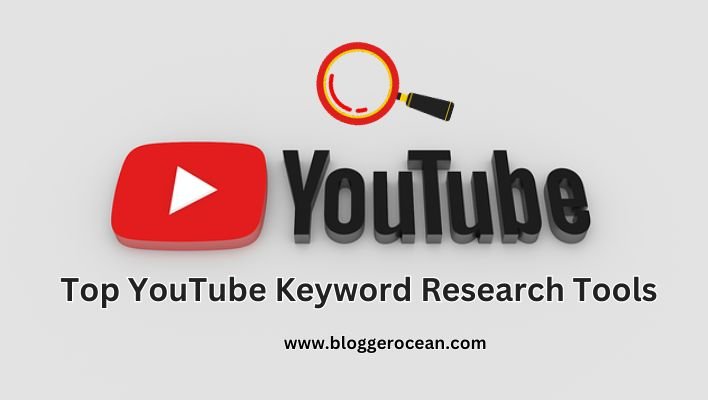What is Blogging? A Comprehensive Guide to Understanding the Blogging Phenomenon
In the vast landscape of the internet, blogging has emerged as one of the most influential and enduring mediums of communication. Whether you’re a seasoned online enthusiast or just starting your digital journey, understanding what blogging is and its significance in today’s digital age is crucial. In this comprehensive guide, we will explore the world of blogging, from its origins to its evolution, and its relevance in contemporary society.
Table of Contents
- Introduction to Blogging
- Defining Blogging
- A Brief History of Blogging
- Types of Blogs
- Personal Blogs
- Professional Blogs
- Niche Blogs
- Corporate Blogs
- Why Do People Blog?
- Personal Expression
- Building a Personal Brand
- Sharing Knowledge
- Earning Income
- The Blogging Process
- Choosing a Blogging Platform
- Selecting a Niche
- Creating High-Quality Content
- Promoting Your Blog
- Monetizing Your Blog
- Affiliate Marketing
- Display Advertising
- Sponsored Content
- Selling Products or Services
- The Impact of Blogging
- Blogging in the Digital Marketing Field
- Influencer Marketing
- Blogging as an Ocean of Information
- The Future of Blogging
- The Role of Artificial Intelligence
- Evolving Content Formats
- Blogging Ethics and Authenticity
- Conclusion
1. Introduction to Blogging
Defining Blogging: At its core, blogging is the act of creating and publishing content on the internet through a platform known as a blog. Blogs can take many forms, from personal diaries to professional news outlets, and they serve various purposes, including sharing thoughts, information, and stories.
A Brief History of Blogging: Blogging has humble beginnings. The term “weblog” was coined in 1997, which eventually morphed into “blog.” Early blogs were simple, text-based platforms used by individuals to share personal thoughts and links to interesting websites. Over time, blogs evolved to include multimedia content, and the blogosphere expanded exponentially.
2. Types of Blogs
Personal Blogs: These are the online diaries of the internet. Personal bloggers write about their experiences, thoughts, and day-to-day life. These blogs are often unfiltered and offer a glimpse into the blogger’s world.
Professional Blogs: Professional bloggers create content related to their area of expertise. This may include topics such as technology, fashion, travel, or any subject they are knowledgeable about. These blogs can serve as a platform to showcase expertise and establish authority in a niche.
Niche Blogs: Niche blogs focus on a specific topic or interest. Examples include food blogs, pet care blogs, and fitness blogs. Niche bloggers cater to a targeted audience with a shared passion.
Corporate Blogs: Many businesses maintain blogs as part of their digital marketing strategy. Corporate blogs can provide updates on company news, share industry insights, and engage with customers. They serve as a valuable tool for branding and customer outreach.
3. Why Do People Blog?
Personal Expression: For many, blogging is a way to express themselves creatively. It offers a platform to share personal experiences, thoughts, and emotions with a potentially global audience.
Building a Personal Brand: Blogging helps you build your brand value and reach a larger audience.
Sharing Knowledge: Blogging is a powerful medium for sharing knowledge and information. Whether it’s a cooking recipe, DIY tutorials, or in-depth analysis of complex subjects, bloggers play a significant role in educating the online community.
Earning Income: Many bloggers monetize their efforts. They can earn income through various methods, including affiliate marketing, advertising, sponsored posts, and selling products or services.
4. The Blogging Process
Choosing a Blogging Platform: Selecting the right platform is crucial. Popular options include WordPress, Blogger, and Medium. Each has its advantages and features, so the choice depends on your goals and preferences.
Selecting a Niche: Identifying a niche you are passionate about and knowledgeable in is essential. This helps you create content that resonates with your target audience.
Creating High-Quality Content: Quality content is the lifeblood of a blog. It should be engaging, informative, and well-researched. Visual elements like images and videos can enhance the reader’s experience.
Promoting Your Blog: Building an audience takes time and effort. Utilize social media, SEO (search engine optimization), and email marketing to promote your blog and attract readers.
5. Monetizing Your Blog
Affiliate Marketing: Bloggers promote products or services and earn a commission on sales generated through their referral links.
Display Advertising: Bloggers can display ads on their sites and earn revenue based on ad impressions or clicks.
Sponsored Content: Brands pay bloggers to create content that promotes their products or services.
Selling Products or Services: Some bloggers sell their own products or services directly through their blogs.
6. The Impact of Blogging
Blogging in the Digital Marketing Landscape: Blogs play a significant role in digital marketing. They contribute to content marketing strategies, drive organic traffic, and enhance brand visibility.
Influencer Marketing: Bloggers with substantial followings are often sought after by brands for influencer marketing collaborations, further emphasizing their influence in the digital space.
Blogging as a Source of Information: Blogs are valuable sources of information on a wide range of topics. They provide diverse perspectives and insights that can be beneficial to readers.
7. The Future of Blogging
The Role of Artificial Intelligence: AI is expected to play a more significant role in content creation and optimization, making blogging more efficient and effective.
Evolving Content Formats: The evolution of content formats, such as video and interactive content, will shape the future of blogging.
Blogging Ethics and Authenticity: As blogging continues to grow, maintaining authenticity and ethical standards in content creation will become increasingly important.
8. Conclusion
Blogging has come a long way since its inception as a simple web diary. It has evolved into a powerful medium for personal expression, knowledge sharing, and business promotion. Understanding what blogging is and its potential impact is key to harnessing its benefits in today’s digital age. Whether you’re a blogger, a reader, or someone curious about this digital phenomenon, blogging continues to shape the way we interact, share, and learn in the online world. Embrace it, and you may discover a new world of possibilities in the vast realm of the internet.






